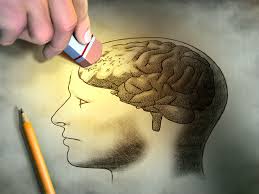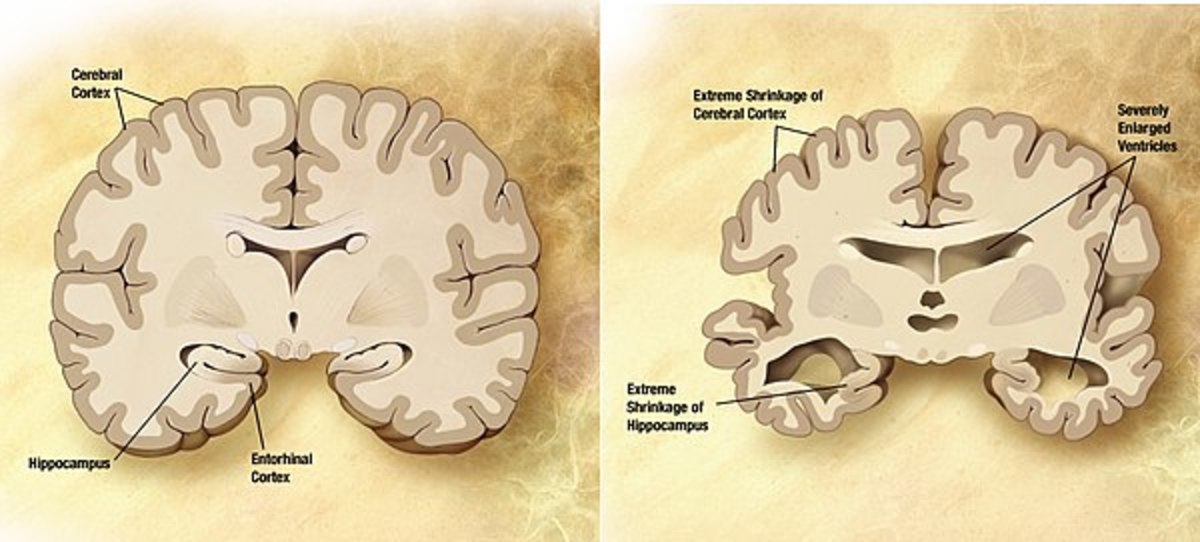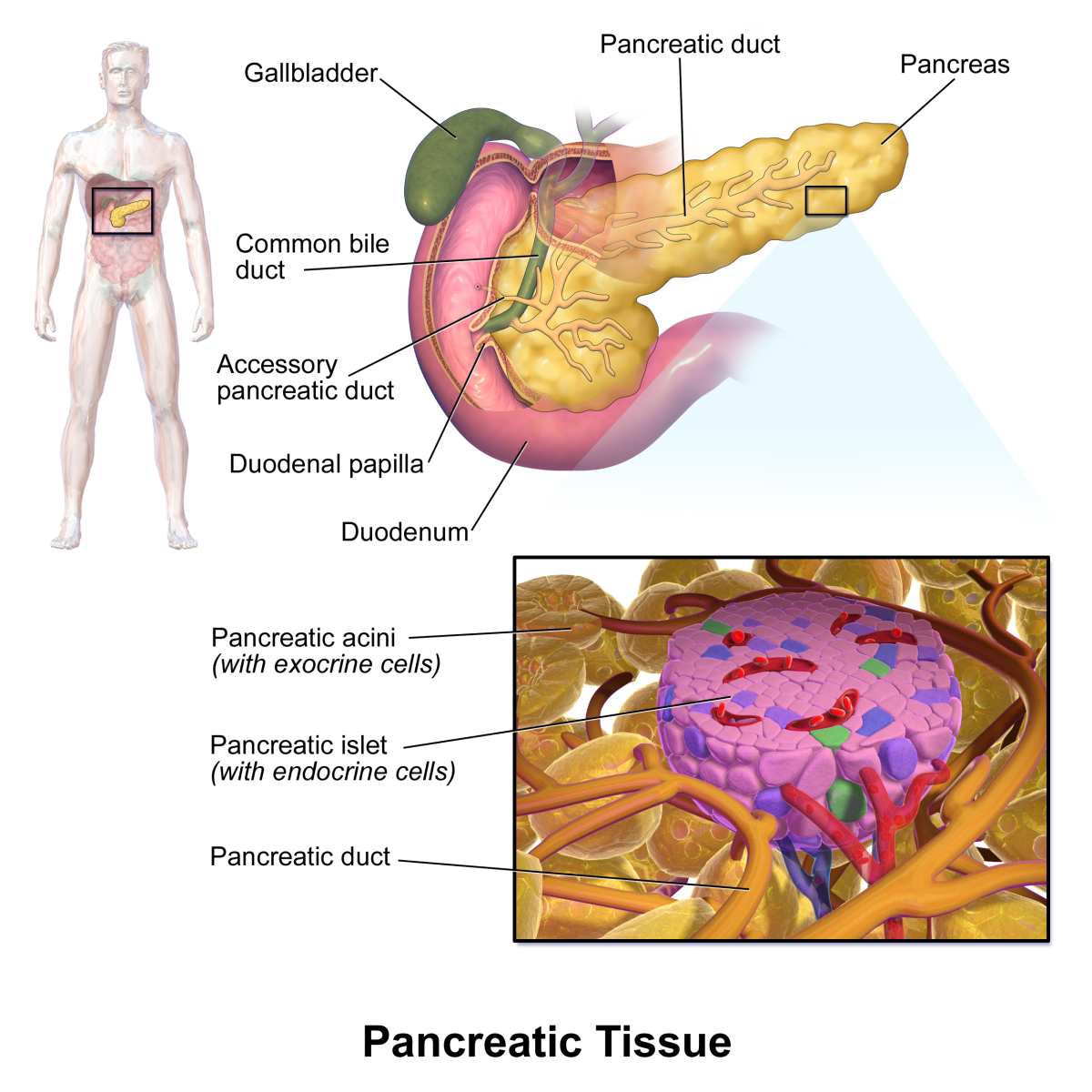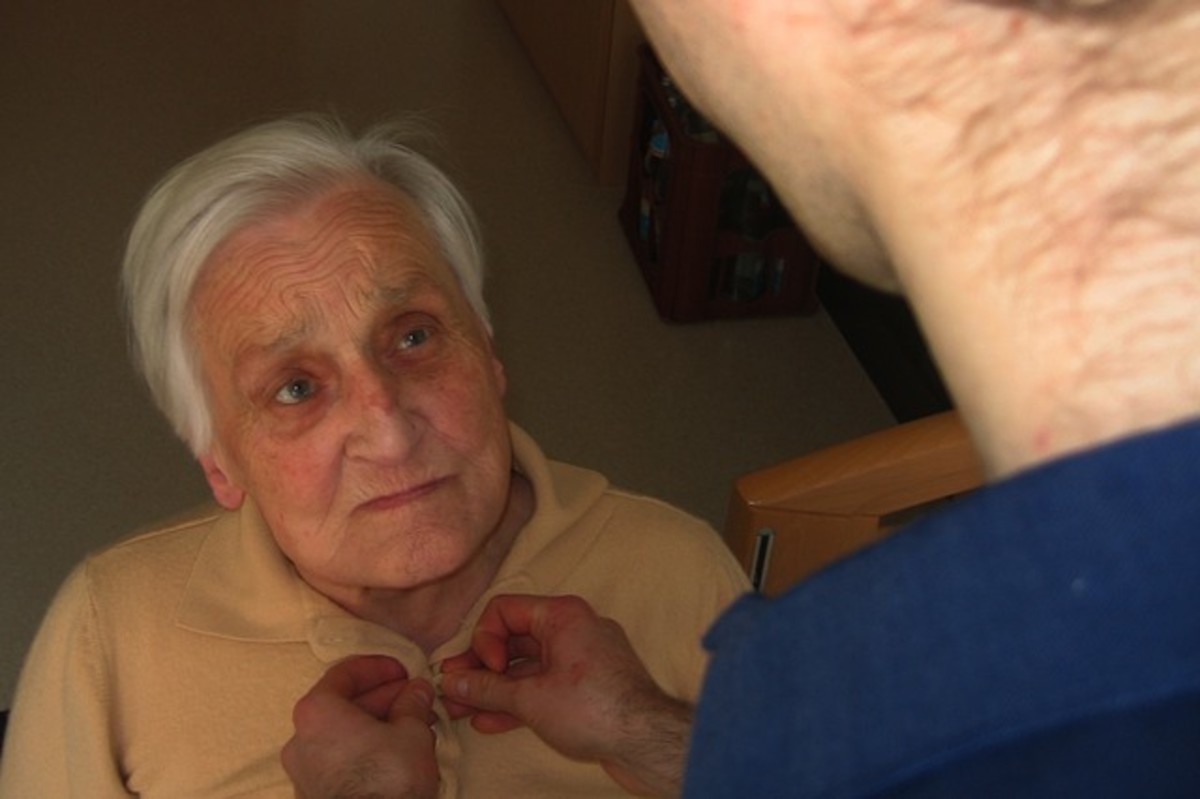Warding Off Alzheimer's Disease

Genetics play a huge role in determining whether Alzheimer's will manifest, and while no one is my family has been diagnosed with Alzheimer's yet, my chances of being afflicted are still high.
Risk Factors
- Diabetes. My unchecked diabetes caused high glucose levels for decades. Studies now show that this causes sticky plaque build up in the brain.
- Mercury exposure. When I was a child, it was common practice to fill cavities with silver mercury. I had lots of fillings that stayed in my mouth until only recently in my late middle age.
- Regular consumption of foods stored in tin and aluminum. Canned food manufacturing during my parents' generation relied upon these materials that have been found to have adverse health effects.
- High meat and fat diet.
- Diet high in soy. In studies, the amount of soy tested for adverse effects equals to about one pound a day. This is far more than the average American but not so for the typical Asian. I happen to be Asian and I eat/ate a lot of tofu daily.
- Exposure to toxic pollution. China is experiencing skyrocketing rates of Alzheimer's and dementia in their elderly population. Scientists speculate that the dangerous levels of air pollution could be contributing to the cause. (Of course, I worry it's due to the high consumption of tofu.)
- Depression.
- Genetics. Alzheimer's and dementia run in families.
Except for the last, I have all the rest of the risk factors. Worse, I have been showing signs of cognitive decline.
Early Signs
- Foggy brain.
- Memory loss.
- Loss of reflex reaction and motor skills.
- Slow mental processing of language.
Most of the above signs can be attributed to the natural aging process but the interfere with daily living, it's something to be concerned about. A doctor can administer a quick screening to determine if the declines warrant treatment.
SAGE (Self Administered Gerocognitive Exam)
- SAGE - A Test to Measure Thinking Abilities
Visit this site to download and print out free self-administered tests. There are several versions of this test as well as foreign language translations of each.
Tests for Cognitive Decline
Here are a few typical questions on cognitive assessment tests.
- State your name, address and telephone number.
- What is today's date?
- Count backwards by 7s, starting at 100. This shouldn't require a lot of time to compute in one's head.
- Draw a round clock face with the numbers on them and put the hands at 10: 35.
- You are buying $13.45 of groceries. How much change would you receive back from a $20 bill?
- Repeat a list of five unrelated items that is given verbally five minutes earlier. Patient must be engaged in other conversation after the list is given verbally to him once and before he repeats it. (music, onion, airplane, country, ape)
SAGE
For a free, more comprehensive self-administered exam, try SAGE (Self Administers Gerocognitive Exam). The link is to the right of this article.
Genetic counseling and Apo E
There are other tests for Alzheimer's, too. Apo E and genetic counseling can help identify the markers that indicate the presence of Alz.

What You Can Do to Prevent Alz
The good news is that you can ward off Alzheimer's disease even if you are genetically predisposed. Genetics account for only about 30 percent of your chances of developing cognitive decline; the rest is influenced by controllable factors.
First, avoid all of the aforementioned risk factors. In addition to that, here are some proven ways to improve your brain health:
- Keep blood sugar within normal ranges. If you have diabetes, manage it well.
- Exercise regularly. This keeps oxygen-rich blood flowing to your brain and helps remove some of the harmful plaque build-up.
- Keep learning. Push your brain with learning something new and playing brain health games.
- Be social. Isolation allows a person to sink into depression while socializing forces one to practice language processing skills. Having to respond to others, exchanging thoughts, works the brain.
- Manage other medical conditions. Take care of your overall well-being. If you must take medication, do so under the watchful eye of a doctor. Take prescribed dosages, note any negative effects.
- Eat a diet that promotes brain health. Some foods has been shown to keep the brain functioning well, and early results reveal some foods may actually reverse some effects of Alz.
Dr. Mary Newport's Coconut Oil Experiment
Coconut Oil Shown to REVERSE Alz Symptoms
Dr. Mary Newport experimented with coconut oil on her own husband who has Alzheimer's. Her results were startling and promising for the use of coconut oil to treat Alz.

Beneficial Coconut Oil
- Coconut Oil
Look for extra virgin, organic, non GMO, cold-pressed coconut oil. It is solid at room temperature but melts easily for use in salad dressing and baking. Dr. Mary Newport melted and stirred two tablespoons into her husband's bowl of morning oatmeal.

Foods that promote brain health
- Coconut oil.
- Olive oil.
- Omega 3 fatty acids. Found in flaxseed, beans, fish, avocados.
- Nuts. Brazil nuts, walnuts, almonds. Not peanuts.
- Seeds. Chia seeds especially.
- Green, leafy vegetables
- Berries and cherries.
- Dark chocolate.
- Tumeric.
- Coffee
"Let food by thy medicine." ~ Hippocrates
Dr.DanielAmen's List of Food that Cause Alz
Are you concerned about developing Alzheimer's?
What is your level of concern?
Should you be concerned?
Everyone should be concerned about brain health because the brain is in charge of all the body's operating systems. In addition, the brain is where the personality exists, and it is most difficult for loved ones to "lose" their Alz or dementia-afflicted family member.
Most of the depression brought on by this condition stems from the patient not being able to function as they once did. The frustrations mount when they cannot remember common things like the name of their spouse and even who they are.
A wise person is proactive and will not wait until signs of these diseases appear. Protect your brain now and ward off Alzheimer's and dementia while you can.








